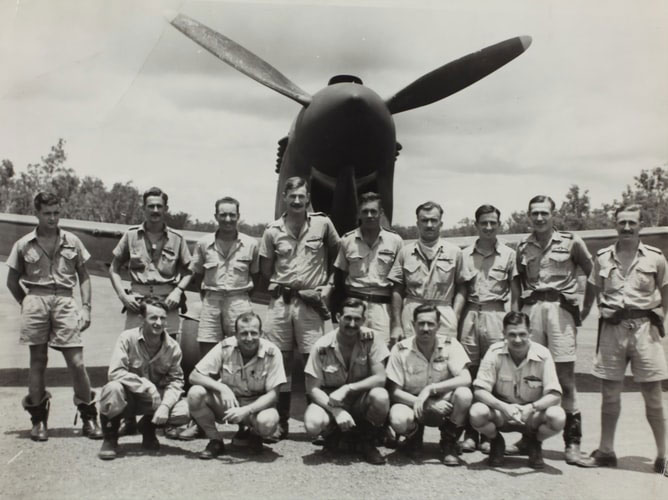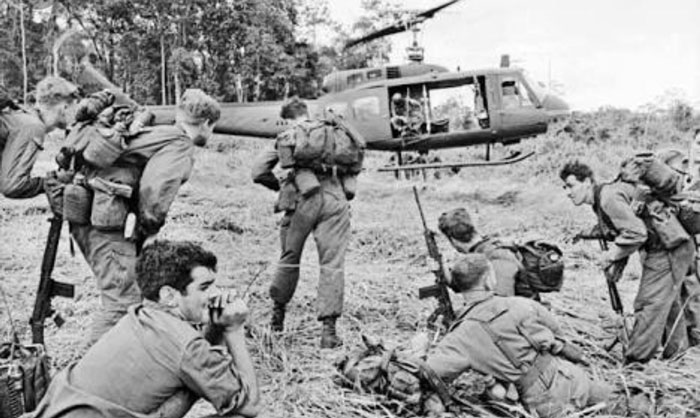We’re all Australians Now – AB “Banjo” Paterson
Australia takes her pen in hand,
To write a line to you, To let you fellows understand,
How proud we are of you.
From shearing shed and cattle run,
From Broome to Hobsons Bay,
Each native-born Australian son,
Stands straighter up today.
The man who used to “hump his drum”,
On far-out Queensland runs,
Is fighting side by side with some
Tasmanian farmer’s sons.
The fisher-boys dropped sail and oar
To grimly stand the test,
Along that storm-swept Turkish shore,
With miners from the west.
The old state jealousies of yore
Are dead as Pharaoh’s sow,
We’re not State children any more
We’re all Australians now!
Our six-starred flag that used to fly,
Half-shyly to the breeze,
Unknown where older nations ply
Their trade on foreign seas,
Flies out to meet the morning blue
With Vict’ry at the prow;
For that’s the flag the Sydney flew,
The wide seas know it now!
The mettle that a race can show
Is proved with shot and steel,
And now we know what nations know
And feel what nations feel.
The honoured graves beneath the crest
Of Gaba Tepe hill, May hold our bravest and our best,
But we have brave men still.
With all our petty quarrels done,
Dissensions overthrown,
We have, through what you boys have done,
A history of our own.
Our old world diff’rences are dead,
Like weeds beneath the plough,
For English, Scotch, and Irish-bred,
They’re all Australians now!
So now we’ll toast the Third Brigade,
That led Australia’s van,
For never shall their glory fade
In minds Australian.
Fight on, fight on, unflinchingly,
Till right and justice reign.
Fight on, fight on, till Victory
Shall send you home again.
And with Australia’s flag shall fly
A spray of wattle bough,
To symbolise our unity, We’re all Australians now.
After the Service by Jeff Cook
I saw a man parade today, in uniform complete,
His hat cocked neatly on his head, clean boots upon his feet, His buttons highly polished, and his belt was shiny too,
His head held high, his shoulders back, like I once used to do.
The pride in him was evident in every move he made,
The smile and twinkle in his eye, that time would never fade,
So young and fit and confident, with his gun upon his shoulder,
And I prayed that he would never see his mates with him grow older.
For if I could alter history the wars would not have been,
No-one should ever have to face the horrors I have seen,
In the stinking, sweaty jungles, with the bullets and the bombs,
And the fever and the insects, in a world so full of wrongs.
I saw fighting in the deserts too, in blinding, searing heat,
Saw men go mad with thirst, or fear, or not a thing to eat,
I saw injuries and damages that no-one could believe,
And saw months of non-stop “action” without a day of leave.
I was part of ocean warfare in a ship and submarine,
Part of sinking other tortured souls – a memory obscene.
I saw oceans full of burning oil, and lifeboats upside down,
And officers and “other ranks” who would either burn or drown.
I piloted a bomber and I bombed from in the skies,
I saw planes explode, or crash to earth, and airmen, too, likewise,
I also flew a fighter and I flew it mighty well,
And I reckon what I saw of war would coincide with hell.
I was nursing sick and broken men to bring them back to health,
And I did all that I could do to protect the Commonwealth,
I fought and fed and flew and rode and drove and sailed and nursed,
And if I could have a dying wish, I’d see those days reversed.
Then no-one would be hurt next time, no mates or cobbers fall,
And everyone would understand the futility of it all,
Now I pray that that young man I saw will be just a sentinel, And I pray that I’m a dying group, – for I am the R.S.L.
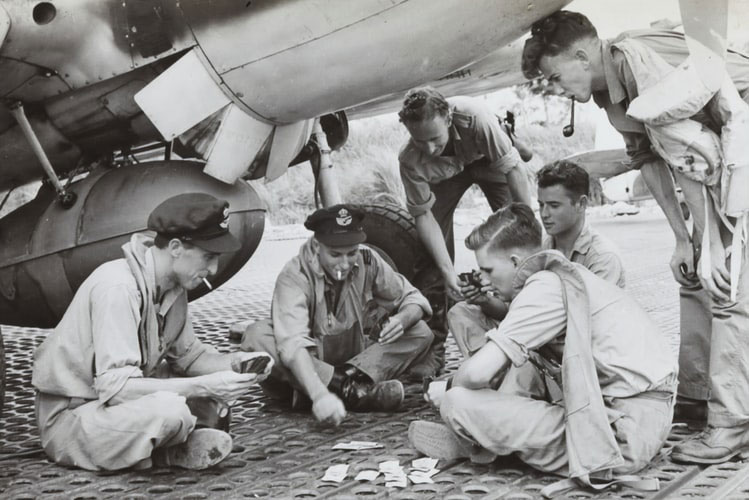
War Baby by Pamela Holmes
He has not even seen you, he
Who gave you your mortality;
And you, so small, how can you guess
His courage, or his loveliness?
Yet in my quiet mind I pray
He passed you on the darkling way –
His death, your birth, so much the same –
And holding you, breathed once your name.
A side of the conflict that is less well documented is that of the women of the Second World War. Yet, in two short stanzas, a heavily pregnant Pamela Holmes, who had been widowed when her husband and the father of her child was killed in action, summed up the scale of grief.
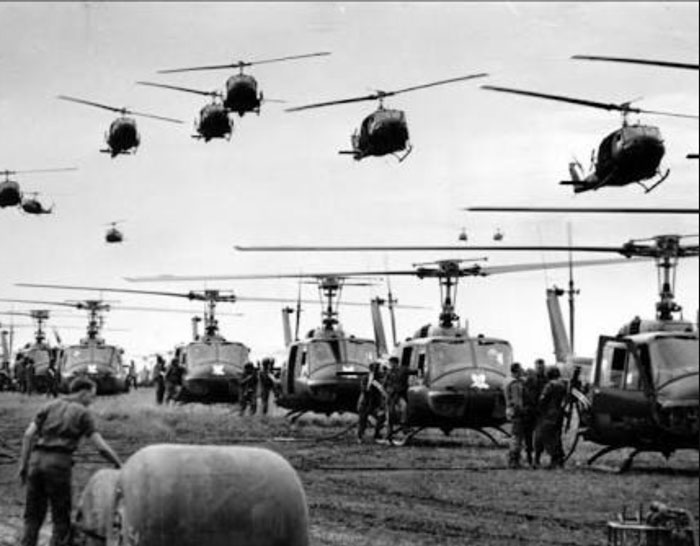
We Are Not Blessed by Nikolay Mayorov
We are not blessed to rot under gravestones –
To lie all stretched, – having half-opened graves,
We hear guns’ roar from the battle’s place
The regimental trumpet’s coarse wails
From the highroads that were our own.
We know all field manuals by heart.
What’s death to us? We’re higher than death here.
In our graves we’re in arrays, advanced,
Wait for a sign to go in a fight
And let all know that the dead do hear
The offspring’s talk of them and their past.
When he was gunned down at Barantsevo village on the Eastern Front during the brutal winter of 1942, Nikolay Mayorov was relatively unknown as a poet, but his haunting works have gone on to symbolise a lost generation of young Soviet men who died in the fight against Nazi tyranny.
In the years since his death at the age of just 22, Mayorov has had streets in Russia named after him, while there is a statue of him in the library of Ivanovo, around 150 miles from Moscow.
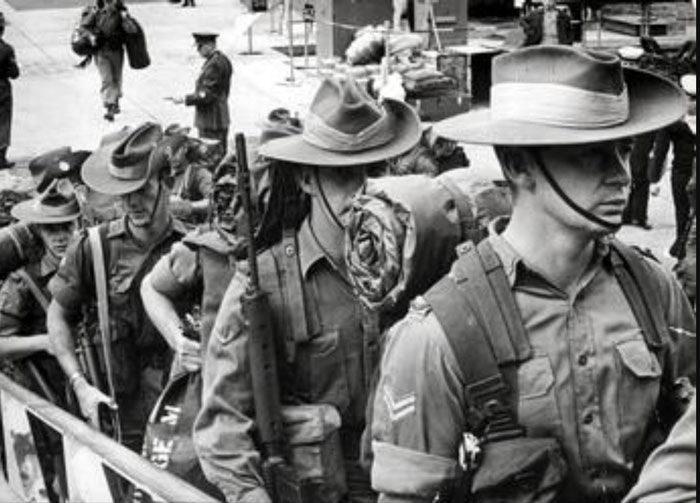
For The Fallen by Laurence Binyon (1869-1943)
With proud thanksgiving, a mother for her children,
England mourns for her dead across the sea.
Flesh of her flesh they were, spirit of spirit,
Fallen in the cause of the free.
Solemn the drums thrill: Death august and royal
Sings sorrow up into immortal spheres.
There is music in the midst of desolation
And a glory that shines upon our tears.
They went with songs to the battle, they were young,
Straight of limb, true of eye, steady and aglow.
They were staunch to the end against odds uncounted,
They fell with their faces to the foe.
They shall grow not old, as we that are left grow old;
Age shall not weary them, nor the years condemn.
At the going down of the sun and in the morning
We will remember them.
They mingle not with laughing comrades again;
They sit no more at familiar tables of home;
They have no lot in our labour of the day-time;
They sleep beyond England’s foam.
But where our desires are and our hopes profound,
Felt as a well-spring that is hidden from sight,
To the innermost heart of their own land they are known
As the stars are known to the Night;
As the stars that shall be bright when we are dust,
Moving in marches upon the heavenly plain,
As the stars that are starry in the time of our darkness,
To the end, to the end, they remain.
The Butterfly by Pavel Friedmann
The last, the very last,
So richly, brightly, dazzlingly yellow.
Perhaps if the sun’s tears would sing
against a white stone…
Such, such a yellow
Is carried lightly ’way up high.
It went away I’m sure because it wished
to kiss the world goodbye.
For seven weeks I’ve lived in here,
Penned up inside this ghetto
But I have found my people here.
The dandelions call to me
And the white chestnut candles in the court.
Only I never saw another butterfly.
That butterfly was the last one.
Butterflies don’t live in here,
In the ghetto.
Few poems captured the bleak horrors of the Holocaust as effectively as The Butterfly by Pavel Friedmann, a Jewish Czechoslovakian poet born in Prague. According to the Holocaust Museum of Houston (HMH), Friedmann was 21 when he wrote the poem at Terezin concentration camp in 1942, before being transported to Auschwitz in 1944 where he was killed.
Although relatively unknown at the time, his poem received worldwide attention in 1959 when it was published in the book I Never Saw Another Butterfly, the HMH says, adding: “Ever since, the butterfly – with its miraculous rebirth and transformation into new life – has become a symbol of freedom from oppression, intolerance and hatred.”

75 years since the end of the Second World War: www.clarencevalleynews.com.au/75-years-since-the-end-of-the-second-world-war-honouring-the-one-million-that-served

